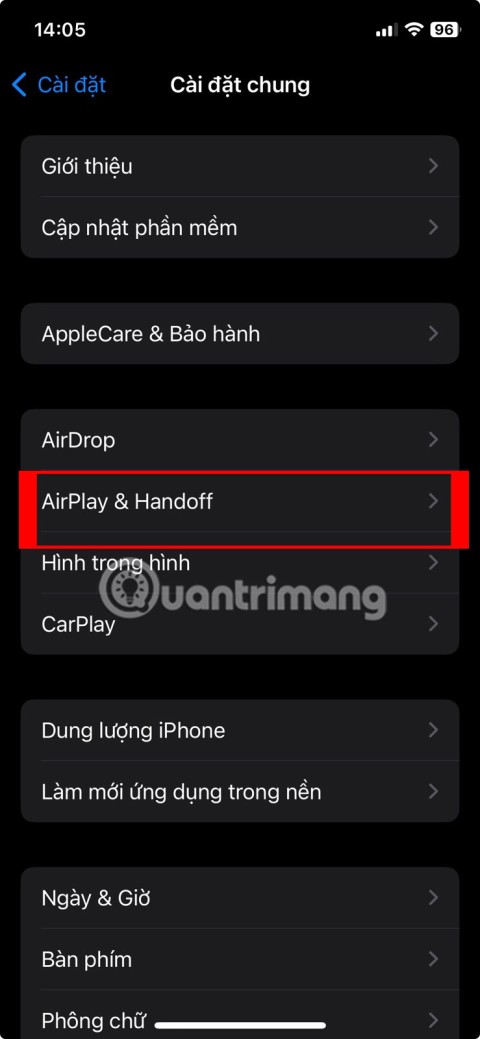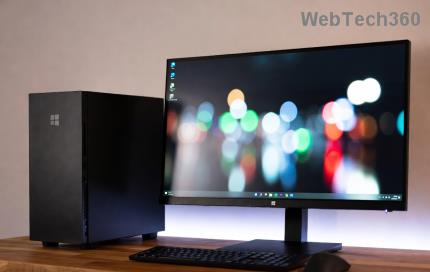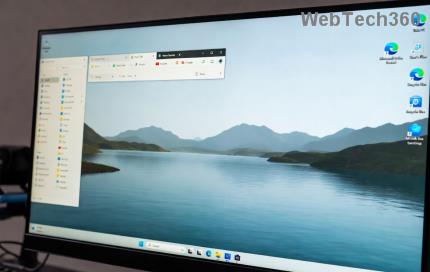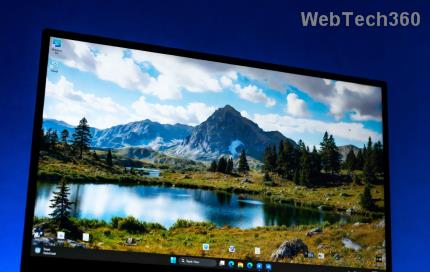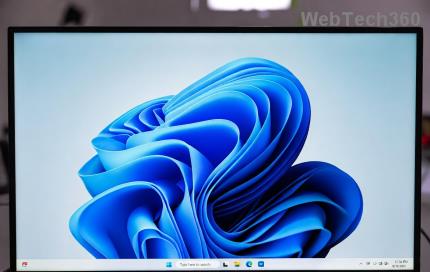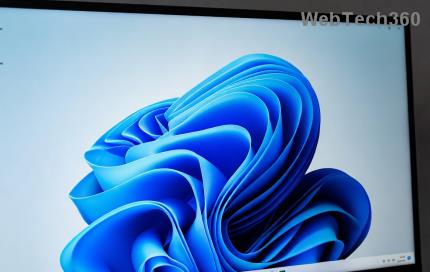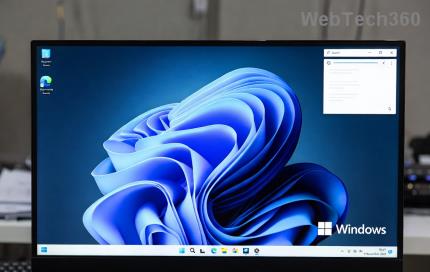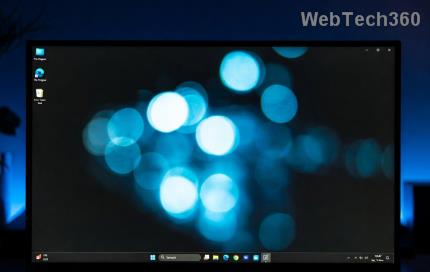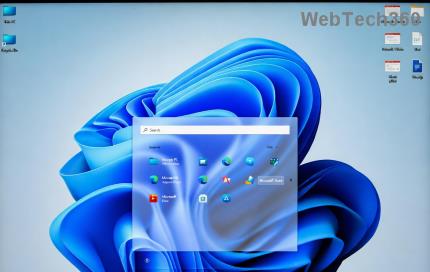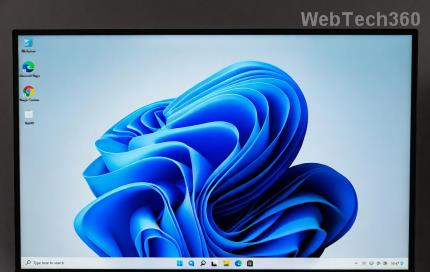How to connect iPhone/iPad to TV

Do you often find that your iPhone screen is too small to view content? You can easily fix this problem by connecting your iPhone or iPad to your TV.
AirPlay isn't just for Apple devices. Windows users can easily get in on the fun of screen sharing and streaming media from their iOS devices to their PCs. Here's how to use AirPlay on Windows.
Table of Contents
AirPlay is a wireless streaming technology similar to Miracast. It offers a number of advantages, the main one being convenience. You tap AirPlay, select your device, and that's it. However, AirPlay was developed by Apple, and like everything Apple, it doesn't like to talk to other systems.
While you can use AirPlay on some TVs, that’s because the manufacturer has paid Apple for the service. AirPlay also doesn’t work on non-Apple devices. However, given the freedom developers have on Windows, there are plenty of workarounds.
While you can’t modify your iPhone to list Windows devices for AirPlay, you can certainly install an app on your PC to act as an AirPlay receiver. Apps like X-Mirage have a simple interface and make using AirPlay on Windows a breeze.
Screen mirroring with AirPlay on Windows allows you to display your iOS device's screen on your PC screen. This is especially useful for presentations, demonstrations, or simply enjoying content on a bigger screen.
First, download and install X-Mirage on Windows. X-Mirage offers a 7-day trial with access to all features. While it is possible to bypass the time limit, it will cost you $20. If you plan on using AirPlay on Windows regularly, it is definitely worth the investment.
Once installed, the X-Mirage icon will appear in your system tray. Next, make sure both your iOS device and Windows PC are connected to the same Wi-Fi network. This is important for AirPlay to work properly.
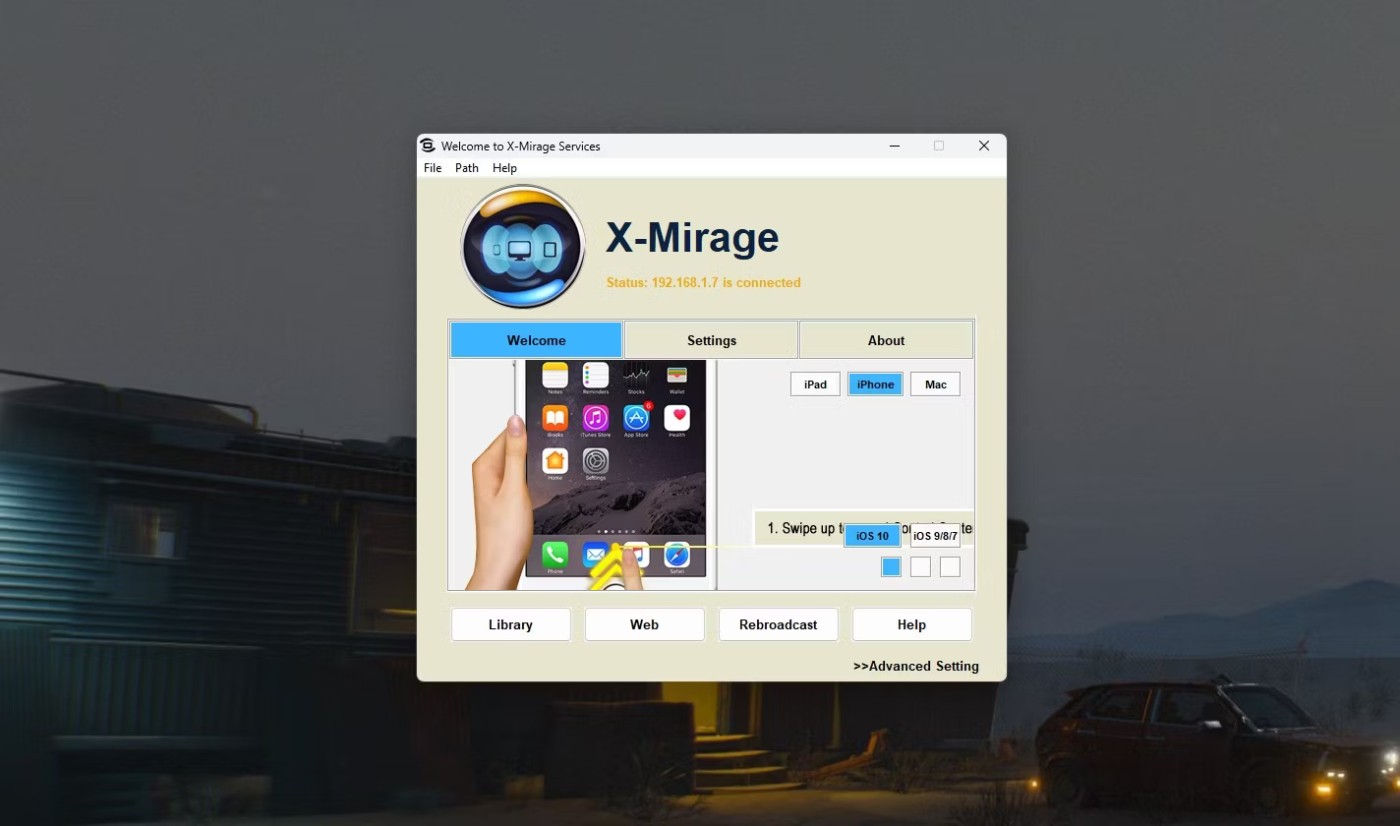
On your iOS device, swipe down from the top-right corner to open Control Center and tap the Screen Mirroring button . A list of available AirPlay devices will appear. Select X-Mirage [your PC name] from the list. You can also customize the AirPlay name from X-Mirage.

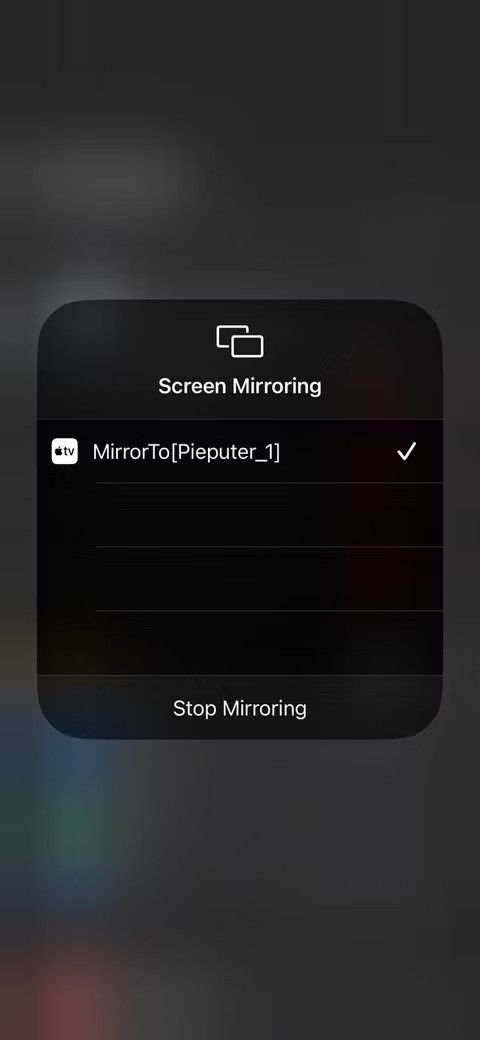
Your iOS device's screen will now be mirrored on your PC screen. Once connected, you can interact with your iPhone or iPad as usual and all actions will be mirrored on your PC screen. The X-Mirage application allows you to adjust the mirroring quality and other settings.
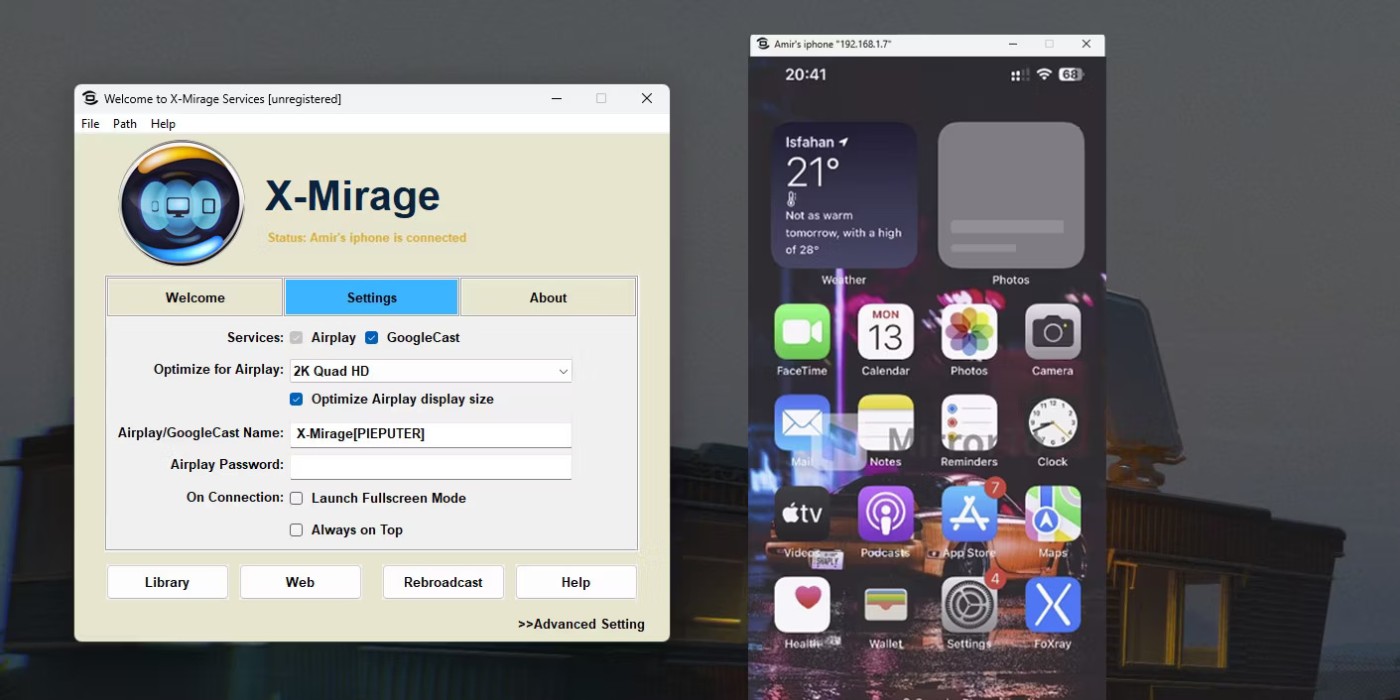
Stream music and movies using AirPlay via X-Mirage seamlessly. It allows you to take advantage of your PC's superior audio capabilities or enjoy content on a larger screen while maintaining control over playback.
Note : iTunes used to be the easiest way to transfer music from iOS devices to Windows, but the app is now gone and no longer supports AirPlay.
As before, make sure X-Mirage is running on your Windows PC and that both devices are on the same Wi-Fi network. Open your favorite music or video app on your iOS device and start playing the content you want to stream. Tap the AirPlay icon (the triangle with concentric circles) in the media app. If you're viewing something in your library, the AirPlay option is in the Share menu.
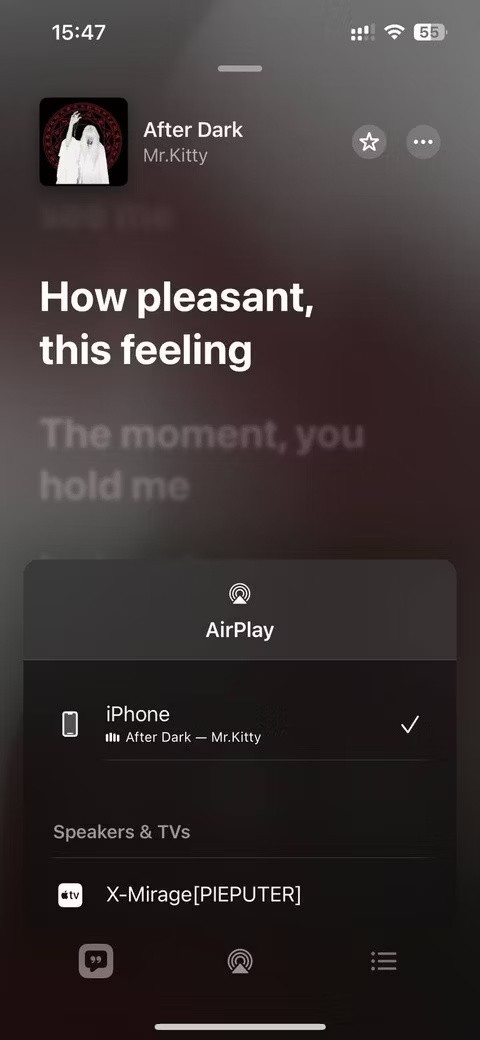
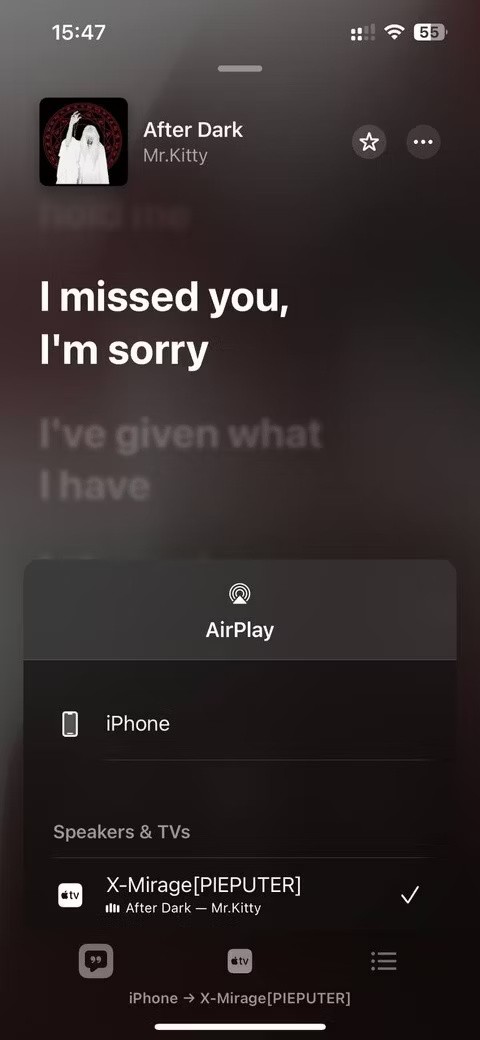
After tapping AirPlay, a list of available AirPlay devices will appear. Select X-Mirage [your PC name] . The audio or video will now be streamed to the PC.
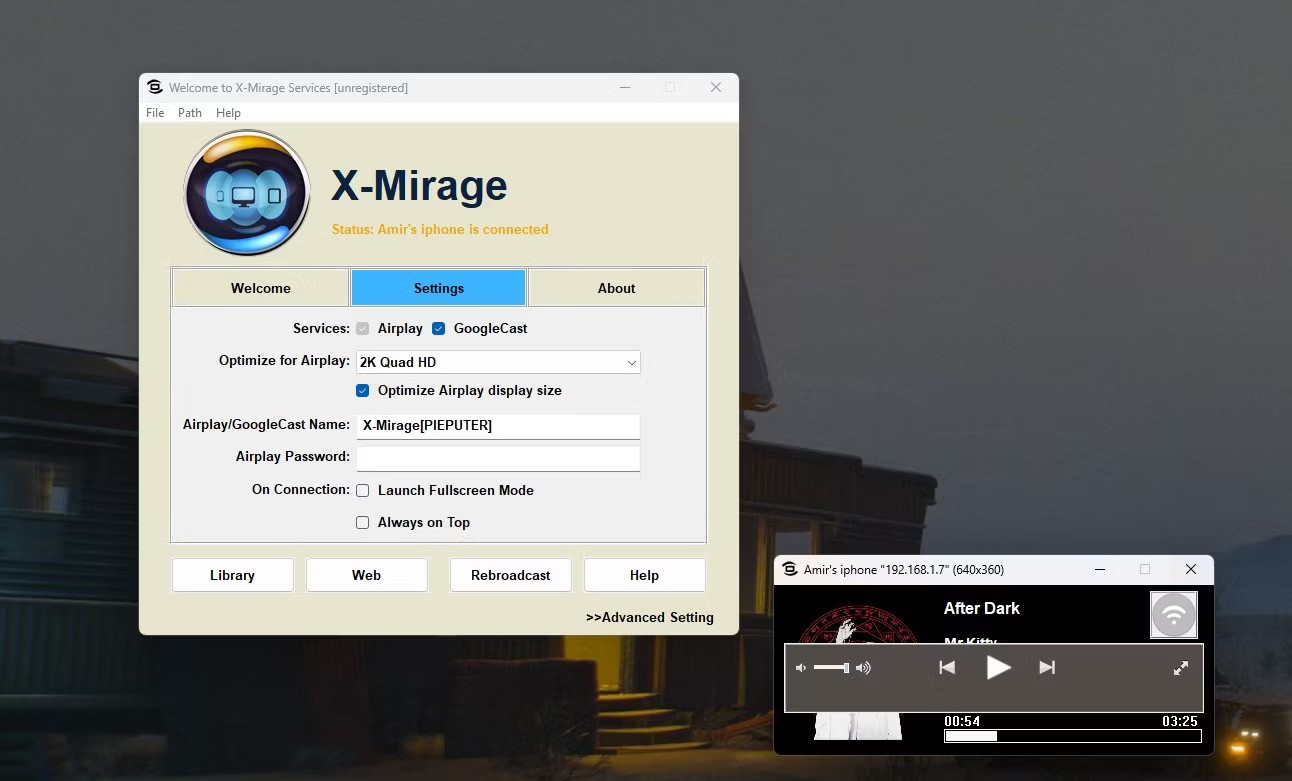
X-Mirage acts as an AirPlay receiver, receiving media streams from your iOS device and playing them on your PC. You can control playback (play, pause, and skip) from your iOS device or the X-Mirage interface on your PC. To stop streaming, simply select your iOS device as the audio output from the AirPlay menu.
While X-Mirage is a powerful AirPlay receiver for Windows, there are several alternatives that offer similar or even additional features.
LonelyScreen is a simple AirPlay receiver for Windows. It allows you to mirror your iOS device's screen and stream audio/video content to your PC. While it lacks some of the advanced features found in X-Mirage, it's a good choice for basic AirPlay functionality.
5KPlayer is a versatile media player that doubles as an AirPlay receiver. It supports a wide variety of video formats and allows you to mirror your iOS device screen, stream media, and even download online videos. 5KPlayer's comprehensive feature set makes it a compelling alternative to X-Mirage.
Reflector 4 is another premium AirPlay receiver known for its beautiful interface and powerful features. It allows for mirroring to multiple devices at once, recording the projected screen, and streaming to various platforms like YouTube and Twitch. Reflector 4’s focus on content creation and sharing makes it a popular choice for educators and streamers.
Kodi is a free and open source media center software that can be extended with add-ons to support AirPlay. With the right configuration, Kodi can act as an AirPlay receiver, allowing you to stream media from your iOS device to your PC. It is a good option for users who already use Kodi to manage their media content. Additionally, Kodi is available on Android TV, and you can use it to turn your TV into an AirPlay receiver.
AirDroid is primarily a file transfer and screen mirroring tool for Android devices. However, with the AirDroid Cast feature, you can also mirror your iOS device's screen to a local website and access it from any device, like a Windows PC.
Using AirPlay on Windows can dramatically improve your media experience and give you more flexibility in how you interact with your iOS device, no matter which app you choose.
Do you often find that your iPhone screen is too small to view content? You can easily fix this problem by connecting your iPhone or iPad to your TV.
AirPlay lets you stream audio/video or mirror your screen to other Apple devices, but if you don't want your device to automatically connect to a nearby Mac, TV, or speaker, you'll need to turn this feature off.
Accidentally deleted precious photos? Discover proven methods to recover deleted photos in Windows 11 effortlessly. Step-by-step guides, tools, and tips to restore your images safely.
Discover how to use Windows 11 Terminal instead of CMD for a modern, efficient command-line interface. Learn installation, setup, and tips to boost your productivity with tabs, themes, and more.
Discover safe, legitimate ways to activate Windows 11 Pro without a product key. Learn step-by-step methods using built-in tools and official Microsoft options to get your OS up and running smoothly. No risks, no hassle – just pure productivity.
Struggling with battery drain during hibernate in Windows 11? Discover expert fixes to preserve your laptop
Struggling with input lag in Windows 11 while playing Valorant or CS2? Discover proven, step-by-step fixes to restore smooth gameplay and boost your performance. Say goodbye to delays and hello to precision shots.
Struggling with the frustrating "Out of Memory" error in Microsoft Edge? Discover proven, step-by-step fixes to reclaim your browsing speed and stability. Updated with the latest tips for optimal performance.
Struggling with Google Drive not launching on Windows 11? Discover proven fixes to resolve the issue fast, from restarts to advanced troubleshooting. Get your cloud storage working seamlessly today!
Discover how to disable Game Bar Presence Writer on Windows to optimize gaming performance. Step-by-step guide to reduce lag, boost FPS, and enhance your setup for smoother gameplay. Essential tips for gamers in 2026.
Struggling with Microsoft Edge crashing after a Windows update? Discover proven, step-by-step fixes to restore smooth browsing. Updated with the latest solutions for 2026. Get back online fast!
Frustrated with Windows 11 desktop icons moving unexpectedly? Discover proven fixes to lock them in place, optimize your setup, and regain control of your desktop effortlessly. Step-by-step solutions for a stable experience.
Struggling with Windows 11 DirectAccess connectivity error? Discover proven, step-by-step fixes to restore seamless network access. Get back online fast with our expert tips.
Discover how to set up Windows 11 multiple monitor backgrounds with step-by-step guidance. Personalize your dual or triple screen setup for a productive and visually appealing workspace.
Struggling with Command Prompt not opening as admin on Windows 11? Discover proven, step-by-step fixes to regain administrator access and boost your PC performance. Quick solutions for seamless troubleshooting.
Struggling with ERR_QUIC_PROTOCOL_ERROR in Microsoft Edge? Discover proven, step-by-step fixes to eliminate this frustrating issue and get back to seamless browsing. Updated with the latest tips for optimal performance.
Stuck in the frustrating Windows 11 Automatic Repair loop? Discover proven troubleshooting steps for 2026 to boot your PC smoothly and regain control. Step-by-step fixes that work.
